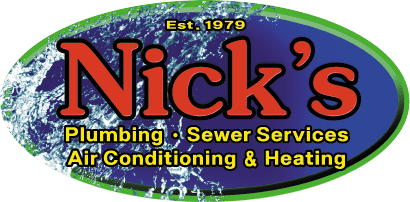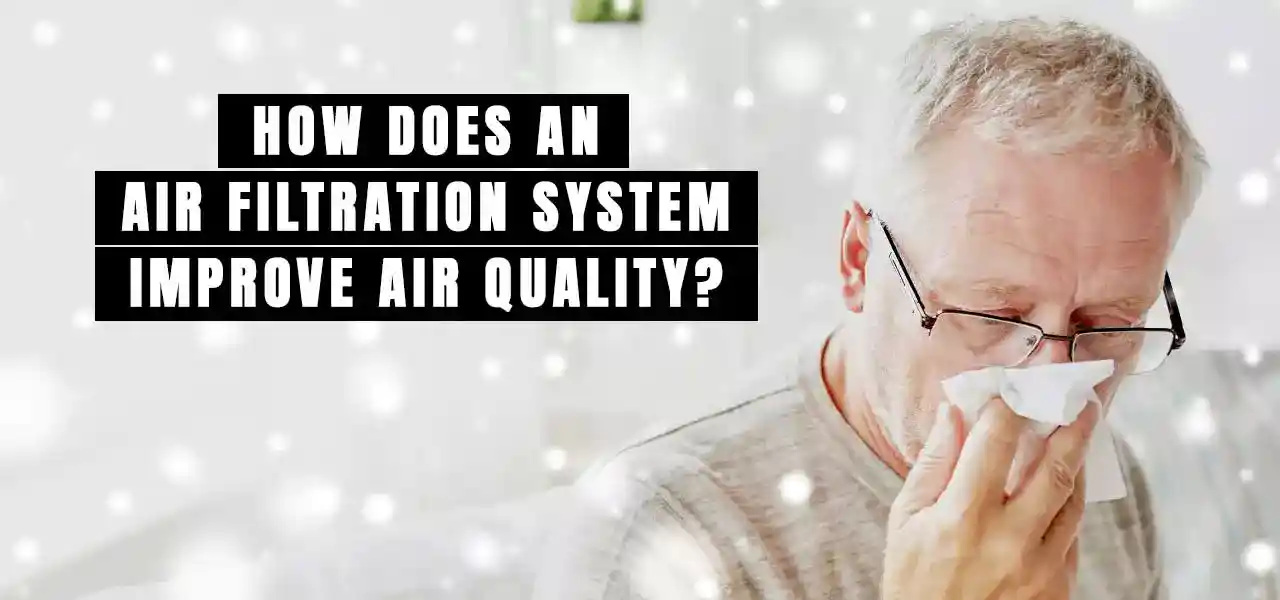Author: Jeff O'Hara
Every home has dust.
In most households, this dust is a combination of smoke, pollen, pet dander, viruses, and bacteria that irritates our noses, throats, and lungs. People with allergies and other sensitivities to airborne irritants are likely to see their symptoms improve with the addition of an air filtration system. The quality of indoor air is always quite a bit lower than outdoor air, as windows and screen doors remain closed so our air conditioners can run efficiently.
How Does an Air Filtration System Improve Air Quality?
Most of the air in our homes is drawn in from the outdoors through ventilation systems and recirculated to adequately cool or heat an area of the house. As the air continues along this repetitive cycle, it picks up and carries more dust and other irritants through the home, leading to possible respiratory issues.
Air filtration systems have experienced increased popularity in recent years, especially with airborne illnesses and pollution all around us. The home air filtration business takes in about $300 million annually, all from homeowners that want to improve their indoor air quality and health.
As air filtration systems have gotten more popular, there has been no shortage of companies looking for the “next big thing.” Many companies offer air filtration and purification products, some of which introduce ozone or ionizing particles to the air, which can make allergies and asthma worse.
HEPA Filtration
Developed in the 1950s, HEPA (high efficiency particulate air) filters are the most well-known air filtration medium and are standard issue with most new system installations. HEPA filters are made from layers of fiberglass panels that contain randomly arranged fibers. To meet the HEPA specification of filtration, a filter must capture 99.97% of airborne particles down to 0.3 microns in size. How does an air filtration system improve air quality when only using HEPA filters? By removing the larger dust, pollen, and other irritants from the recirculating air, asthma and allergy sufferers will see almost immediate relief.
Germicidal Ultraviolet Air Purifiers
While HEPA filters are good at removing the more significant irritants in our air, many contaminants like bacteria, viruses, and mold are not drawn out by HEPA-only systems. Installing a germicidal ultraviolet air purifier is another step the homeowner can take to help improve the air quality in your home. Ultraviolet light interrupts the DNA of viruses and bacteria, making it impossible for them to reproduce. In addition to protection from airborne illnesses, ultraviolet air purifiers neutralize any volatile organic compounds (hair spray, ammonia).
Nick’s Air Conditioning and Heating Services offers the RGF Reme Halo® Advanced Air Treatment System. Reme Halo® uses ultraviolet light to eliminate airborne irritants, and a proprietary Advanced Oxidization Process uses hydrogen peroxide to purify the air in your home.
If how does an air purification system improve air quality is something you’ve wanted to ask an expert, call the HVAC professionals at Nick’s Air Conditioning and Heating. Have us out for a cost evaluation or second opinion on any air purification improvements you want to make to your home.


